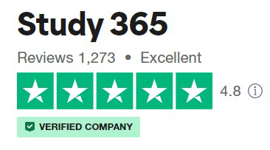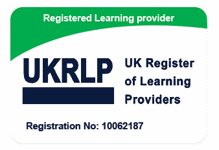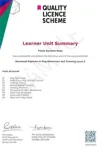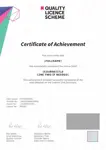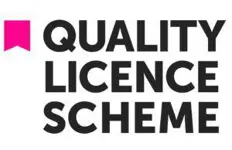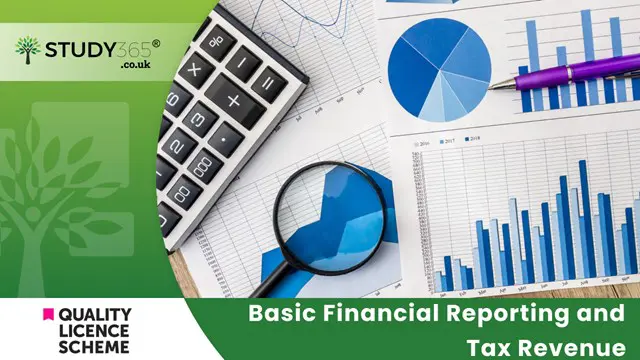
Basic Financial Reporting and Tax Revenue
Free E - Certificate Included | CPD & IAP Accredited | Access for 365 days | No Hidden Fee
Study365
Summary
- Exam(s) / assessment(s) not included in price, and must be purchased separately
- TOTUM card available but not included in price What's this?
Overview
Diploma in Basic Financial Reporting and Tax Revenue - Level 4 Certification
Financial reporting is a process that keeps track of the financial transaction of an organisation, whereas taxation is an amount charged by the government on a taxpayer. Both of these concepts are related, and understanding the basics of both the concepts can take you to great heights in your financial career.
This Diploma in Basic Financial Reporting and Tax Revenue – Level 4 has gone beyond expectation to expand your knowledge on financial accounting and taxation. This course, with its well narrated modules, will explore the regulation of financial and accounting reporting to help you adhere to them as required. A few modules will guide you on how to produce accurate trial balance and other financial statements, all the while familiarising you with the accounting standards that define the basis of financial accounting policies and procedures.
The learning materials have done justice to the course title by delving into topics such as tax, international tax and tax in the financial statements. Furthermore, this course is also focused on discussing the lasb accounting framework and the ethics in financial reporting to bring you out as a highly sought after financial accounting professional within the industry.
The course has been endorsed under the Quality Licence Scheme. This means that Global Edulink* has undergone an external quality check to ensure that the organisation and the courses it offers, meet defined quality criteria. The completion of this course alone does not lead to a regulated qualification* but may be used as evidence of knowledge and skills gained. The Learner Unit Summary may be used as evidence towards Recognition of Prior Learning if you wish to progress your studies in this subject. To this end the learning outcomes of the course have been benchmarked at Level 4 against level descriptors published by Ofqual, to indicate the depth of study and level of demand/complexity involved in successful completion by the learner.
The course itself has been designed by Global Edulink* to meet specific learners’ and/or employers’ requirements which cannot be satisfied through current regulated qualifications. the Quality Licence Scheme endorsement involves robust and rigorous quality audits by external auditors to ensure quality is continually met. A review of courses is carried out as part of the endorsement process.
*Study365 is an approved reselling partner for Quality Licence Scheme courses under Global Edulink
*Regulated qualification refers to those qualifications that are regulated by Ofqual / CCEA / Qualification Wales
Achievement
Course media
Description
What will I Learn?
- Understand the regulation of financial and accounting reporting
- Explore the lasb accounting framework
- Discover how to produce accurate trial balance and other financial statements
- Familiarize with the accounting standards that define the basic of financial accounting policies and procedures
- Learn about tax, international tax and tax in the financial statements
- Discover the ethics in financial reporting
Course Curriculum
1: Understanding The Accounting And Financial Reporting Regulations
2: Understanding The Iasb Framework
3: What Is Financial Statement
4: Introduction To The Ias 2 Inventories And None Current Assets
5: Ias 38 Intangible Assets
6: Creating Producing Financial Statements
7: The Cash Flows Statement
8: Introduction To Group Accounts
9: Basic Principals Of The Statement Of Financial Position
10: What Is Income Statement
11: Definition Of Associate
12: Understanding The Accounting Standards
13: Ias19 Employee Benefits
14: Introduction To Tax
15: Identify The Tax Types
16: Introduction To The International And Financial Statement Taxation
17: Who Is An External Auditor
18: Understanding The Corporate Governance
19: Introduction To Ethics And Financial Reporting
20: Working Capital Management
21: How To Manage Receivables And Payables
22: Efficient Manage Of Inventories And Cash
23: Introduction To The Short Term Finance And Investment
Method of Assessment
This online course is assignment-based with learners being assessed upon the submission of a series of assignments. Once you successfully submit the assignments, students will gain a professional qualification. The assignments must be submitted to the instructor through the online learning portal. The assignments will be reviewed and evaluated, with feedback provided to the student on how well they have fared.
Certification
At the end of this course successful learners will receive a Certificate of Achievement from the Quality Licence Scheme and a Learner Unit Summary (which lists the components the learner has completed as part of the course).
Accredited Body
Accredited body (Accreditation) the Quality Licence Scheme has long-established reputations for providing high quality vocational qualifications across a wide range of industries. the Quality Licence Scheme combines over 180 years of expertise combined with a responsive, flexible and innovative approach to the needs of our customers.
Renowned for excellent customer service, and quality standards, the Quality Licence Scheme also offer regulated qualifications for all ages and abilities post-14; all are developed with the support of relevant stakeholders to ensure that they meet the needs and standards of employers across the UK.
Who is this course for?
This course might suit anyone aspiring to get into or progress within the finance or accounting industry
Requirements
- Learners must be age 19 or over and should have a basic understanding of the English Language, numeracy, literacy, and ICT.
- A recognised qualification at level 3 or above in any discipline.
Career path
- Accountant – £28,565 per annum
- Tax Accountant – £29,001 per annum
- Accounts Assistant – £18,883 per annum
- Accounts Executive – £22,243 per annum
- Staff Accountant – £24,115 per annum
- Accounting Assistant – £20,352 per annum
- Accounting Clerk – £17,609 per annum
- Accounts Payable Clerk – £19,801 per annum
Questions and answers
Currently there are no Q&As for this course. Be the first to ask a question.
Reviews
Currently there are no reviews for this course. Be the first to leave a review.
Legal information
This course is advertised on reed.co.uk by the Course Provider, whose terms and conditions apply. Purchases are made directly from the Course Provider, and as such, content and materials are supplied by the Course Provider directly. Reed is acting as agent and not reseller in relation to this course. Reed's only responsibility is to facilitate your payment for the course. It is your responsibility to review and agree to the Course Provider's terms and conditions and satisfy yourself as to the suitability of the course you intend to purchase. Reed will not have any responsibility for the content of the course and/or associated materials.

